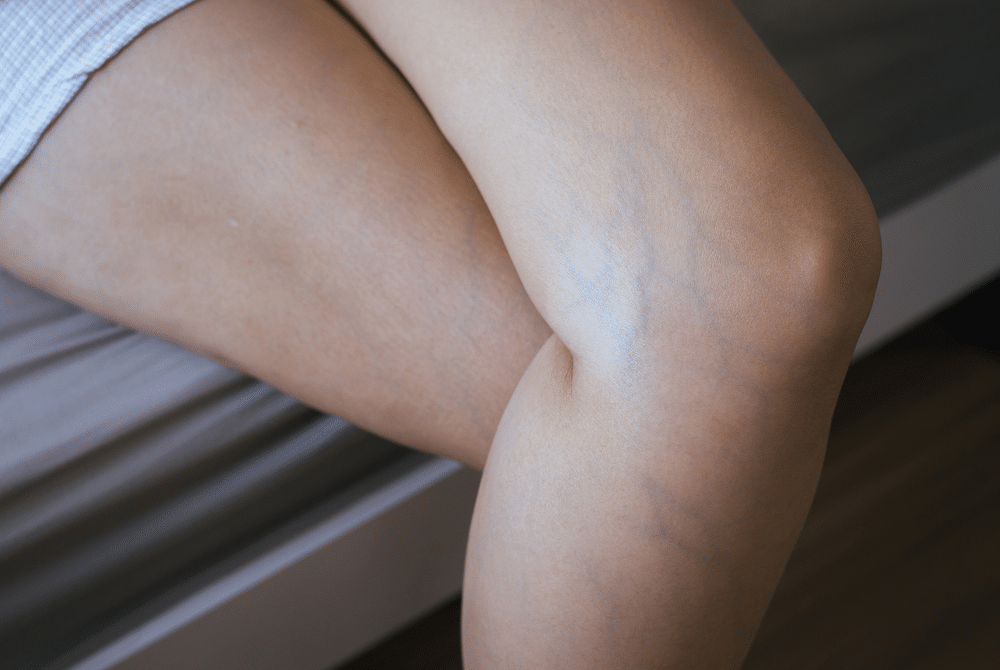Vein concerns can make people feel self-conscious about the appearance of their legs, but some vein concerns may be related to medical conditions. In either case, it’s a good idea to have your veins evaluated by a vein specialist at VENUS Vein Clinic in Omaha, NE. An evaluation is the first step to finding a treatment that will improve your vein concern and help you feel better about your appearance.
What Problems Can a Vein Specialist Treat?
A vein specialist is a doctor who is specially trained to evaluate and diagnose many vein conditions. In general, a specialist may be recommended for any patient who has visible vein concerns. There are several vein conditions that are commonly found in adults, particularly women and older adults. These common vein conditions may include:
Spider Veins
Spider veins are a thin, web-like collection of veins that are visible through the top layer of skin. Spider veins can develop after inflammation, injury, or simply as a result of hormonal fluctuations. This vein condition is generally benign, but spider veins often appear with other vein conditions, such as varicose veins.
Varicose Veins
Varicose veins are the most commonly-known vein concern. As a purely superficial vein condition, varicose veins are not strongly related to serious medical risks. However, varicose veins have the appearance of raised, gnarled, or bulging veins that may cause pain or aches in the legs. Varicose veins are often very large and noticeable, even from a distance.
Venous Insufficiency
Venous insufficiency is a chronic condition that is often related to the development of other benign vein concerns, such as spider veins and varicose veins. This condition is caused by malfunctioning blood flow in your legs. Essentially, instead of blood flowing one way through the veins toward your heart, the valves in the veins cause blood to flow in both directions, which can lead to blood pooling in the legs. For some people, this condition can cause pain.
Serious Vein Conditions
Finally, a vein specialist may be able to treat major vein concerns like deep vein thrombosis or venous ulcers. It’s very important to see a specialist if you are experiencing symptoms of either of these conditions since these conditions can be life-threatening if left untreated. If you have either of these conditions, your specialist may recommend surgery.
When Do You Need To Visit a Specialist?
In general, you will need to visit a specialist when you notice any visible vein concerns in your legs. To be on the safe side, you should schedule a consultation with a specialist if you experience any of the following symptoms.
Discomfort
Throbbing, heaviness, burning, or significant pain in your legs is a sign that you need to be seen by a doctor. Discomfort is usually the most obvious sign that something about your leg condition has changed and may be serious. This is particularly important if you feel heaviness in your legs, which may be an indicator of potential blood clots or venous ulcers.
Discoloration
Vein discoloration is another obvious sign that it’s time to see a specialist. When there is visible vein discoloration, this is usually an indication that blood is pooling in the legs. Often, vein discoloration is present with spider veins and varicose veins, but you may need immediate medical attention if the discoloration is also paired with swelling, heat, and pain.
Twists or Bulges
Twisting and bulging veins are the biggest sign that you have varicose veins. Twisted veins may also be a sign of venous insufficiency. As a note, varicose veins are typically most common in women, especially pregnant women.
Are All Vein Concerns Related to Medical Conditions?
Not at all. Many vein concerns, such as spider veins and varicose veins, are unrelated to your cardiovascular health and do not represent a risk of developing a major health condition. Even a condition like venous insufficiency is not necessarily related to a major health concern. However, to be on the safe side, it’s always best to visit a specialist for an evaluation and diagnosis.
What Happens During Your Consultation?
During your consultation with a specialist, you will follow several steps for your evaluation and diagnosis. For example, you may be directed to wear a hospital or surgical gown so the specialist can have better access to your legs. Other steps of your consultation include:
Medical History
Your specialist will need to gather your medical history since this information will be relevant to your vein condition. For example, some medications may increase your risk of developing vein concerns. For women, your medical history may be relevant because hormonal changes are sometimes associated with vein conditions.
Vascular Ultrasound
Next, a vascular ultrasound will be performed on the same day as your consultation. The ultrasound will allow your specialist to closely examine your vein condition to form a better diagnosis. This may be important if you are complaining about symptoms such as pain or aching in the legs, or if there is visible swelling.
Treatment Recommendations
Finally, your specialist will make recommendations for the treatments that are ideal for your vein condition. This may include surgery or minimally invasive treatments such as sclerotherapy.
Visit a Specialist Today
Although many vein concerns are benign, it’s still smart to see a specialist if you are experiencing twisting veins, swelling, pain, or any other concerning symptoms. Schedule your consultation at VENUS Vein Clinic in Omaha, NE today.

